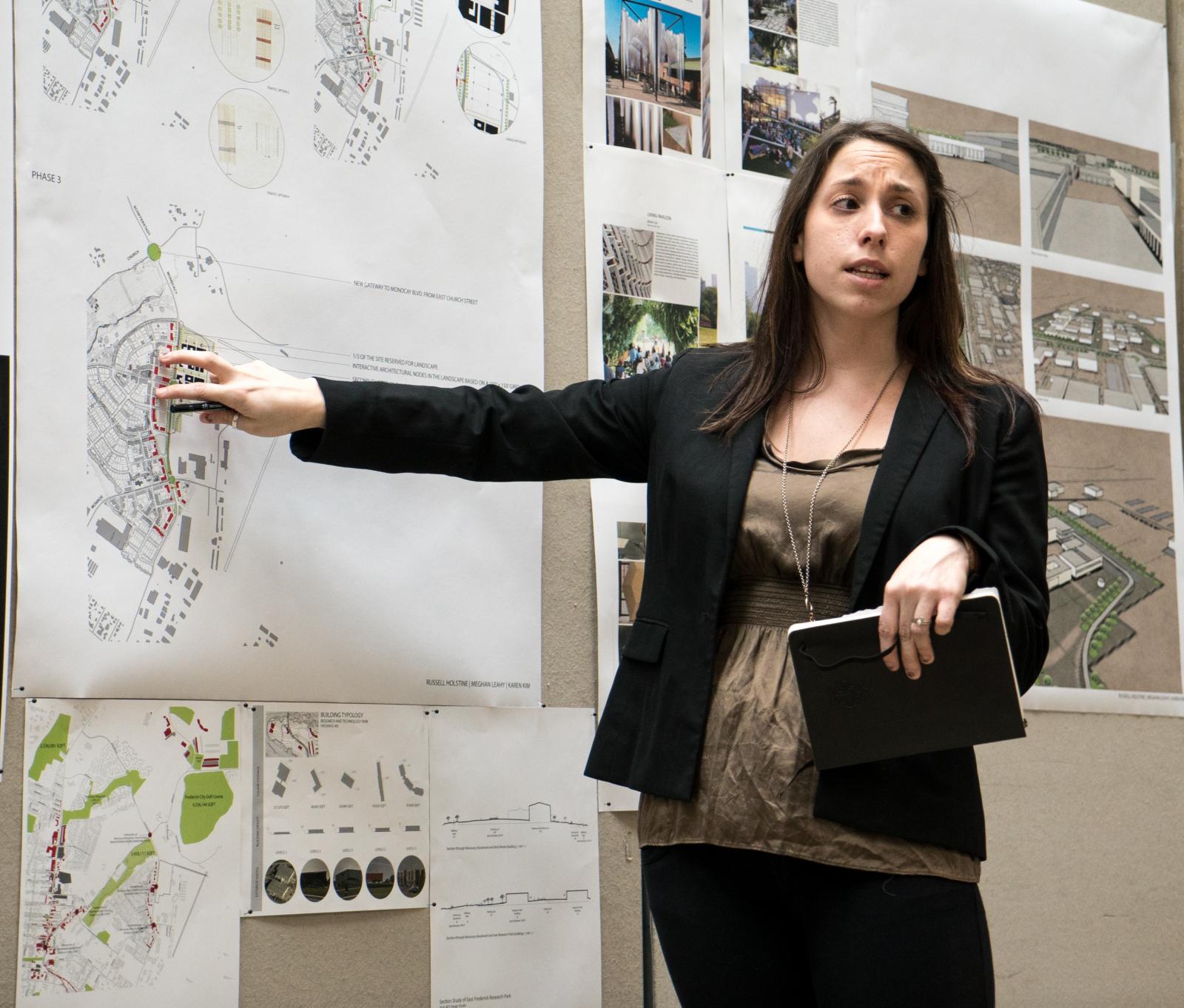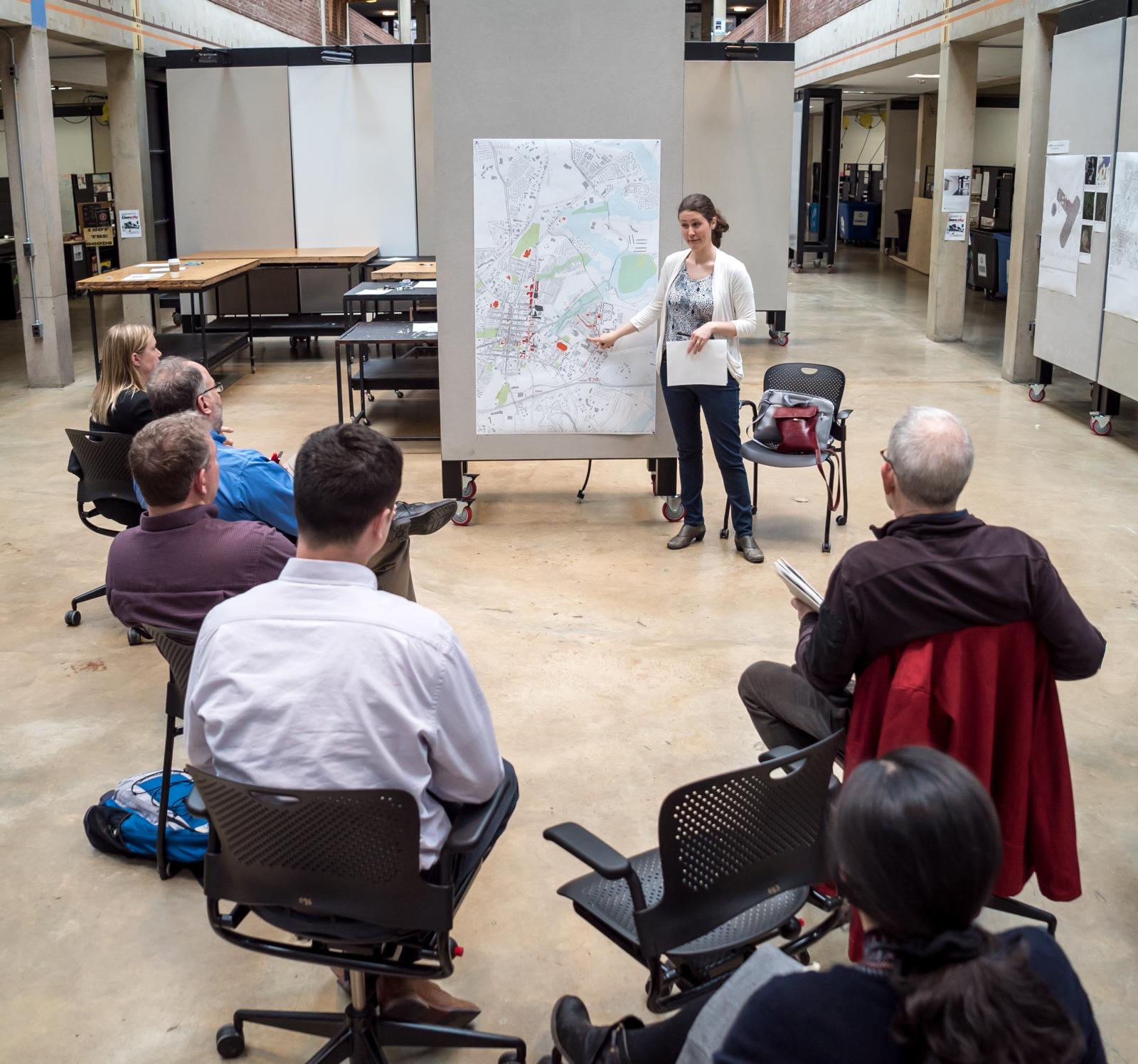The University of Maryland’s National Center for Smart Growth announced today a new, on-going partnership with the City of College Park that will leverage University assets to tackle city challenges in sustainability. The Partnership for Action Learning in Sustainability, or “PALS” program, will match coursework across a variety of disciplines with issues pertaining to the economic, environmental and social well-being of College Park. Although unofficially launched in January, the Memo of Understanding was approved Tuesday night at a meeting of the College Park City Council.
“We are very excited about implementing PALS in our home of College Park,” says Uri Avin, Director of the PALS program. “This partnership has been in the works since the program’s beginning in 2014. Besides the real-world learning experience PALS provides, it will no doubt be exciting for students to see their work create positive change in their own backyard.”
Four courses are already underway with the city: an architecture studio course examining the former “Barking Dog” space on Route 1; a greenhouse gas analysis of College Park; a study of current waste management practices; and a public art / “place-making” studio course. Seven University programs—from architecture to environmental science—will concentrate student efforts and faculty expertise for the city this semester.
“The City’s partnership with the PALS program will help us achieve the Council’s goal for College Park to become a leader in sustainability,” said Bill Gardiner, Assistant City Manager of the City of College Park. “This collaboration will provide research and recommendations that will inform our policy decisions.”
Building on a promising first semester
Launched last September with the support of Provost Mary Ann Rankin and University administrators, PALS offers a bold, new way of leveraging student ingenuity and faculty expertise campus-wide, providing real solutions to sustainability issues facing Maryland communities. PALS pairs custom coursework with challenges defined by the partner community. College Park is the second jurisdiction to partner with the program since its inception; The program’s inaugural partnership with The City of Frederick, Md., which launched in September, boasts a roster of over 25 courses that focus on a variety of projects, including the development of a downtown revitalization plan, outreach and marketing assistance to minority business owners, creating a city composting program and addressing water quality issues. It is estimated that PALS will provide the city with over 50,000 hours of student and faculty work during its year-long partnership. Despite its freshman status, PALS is the third largest of 18 action-learning initiatives in the United States.
“I am so impressed with the level of work,” said The City of Frederick Alderman Michael O’Connor to UMD students and faculty, at a project presentation in Frederick last month. “If we can do ten percent, five percent, even one percent of what you brought forward, then this partnership has been worth it for the City of Frederick.”
Prior to PALS, most university “community-engaged” coursework operated in a vacuum, often limited by the size of the class and length of the course. The aim of PALS is to funnel these efforts and provide a concentrated, well-orchestrated surge of interdisciplinary ideas and approaches to the economic, social and environmental challenges for one community. The meaningful, on-the-ground community engagement not only provides a living case study for students, it offers a rewarding interactive experience that mirrors future professional interactions within their disciplines.
“What makes PALS so exciting is its experimental pedagogy,” said David Cronrath, Dean of the University’s School of Architecture, Planning and Preservation. “PALS challenges students to apply their knowledge in practice by giving them a problem; a real, community challenge that needs a solution. The program provides an environment for students to work collaboratively with their peers across a variety of disciplines under the guidance of faculty experts and community stakeholders. It tosses the notion of ‘conventional teaching methods’ out the window.”
The PALS partnership with Frederick will continue through the summer. While the program will typically focus on a single partner per academic year, the College Park partnership expects to be perennial, allowing students to provide long-term support and build on student efforts year after year. In addition to College Park, the program will announce a second, 2015-16 community partner in March.
“We are very pleased with the results of PALS and the positive feedback from our faculty and partner jurisdictions” said Gerrit Knaap, Director of the National Center for Smart Growth. “We look forward to this new collaboration and the opportunities it will provide UMD students.”


